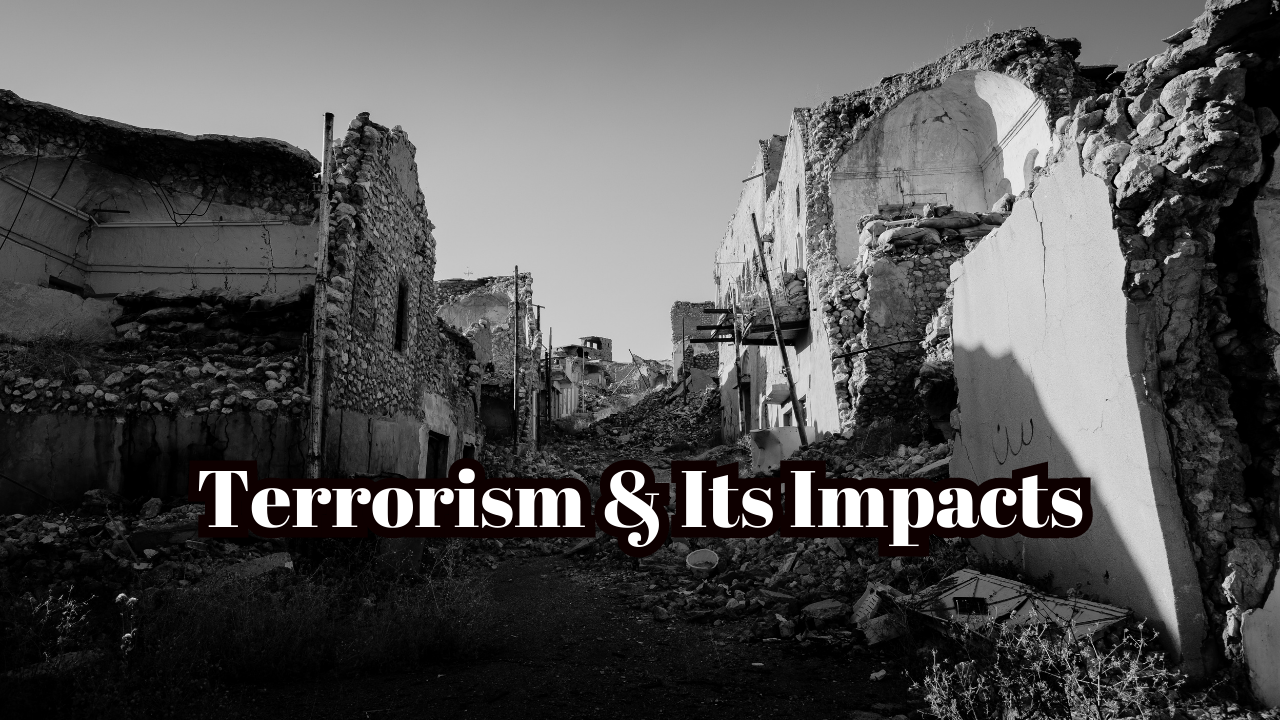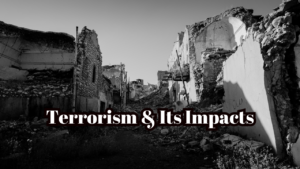
The Impacts of Terrorism on Pakistan’s Development
Terrorism
Terrorism is a violent and extreme form of political or ideological expression that aims to create fear, panic, and terror among a target audience. It involves using force or violence against civilians or non-combatants to achieve political, social, or religious objectives.
Terrorism can be committed by individuals, groups, and state or non-state actors and can take many different shapes, such as bombs, kidnappings, hijackings, assassinations, and cyberattacks. It can have profound psychological and social ramifications on the immediate victims and the larger community. It is frequently driven by the desire to obtain political influence or attention for a cause.
The world community unanimously denounces terrorism as a breach of fundamental human rights and a danger to international stability. However, there is disagreement over what exactly qualifies as terrorism, as certain individuals or groups who commit violent acts may be regarded by some as insurgents or freedom fighters and by others as terrorists.

Impacts of Terrorism
Terrorism has significant impacts on individuals, communities, and nations worldwide. Here are some of the major impacts:
Loss of life: Terrorism frequently entails violent attacks that claim the lives of innocent people, leaving the victims’ relatives traumatised emotionally and psychologically.
Psychological trauma and fear: Terrorist attacks foster a state of fear and uncertainty among the populace, which can have a long-lasting negative impact on mental health.
Economic harm: Terrorist acts can have a considerable negative impact on the economy, especially in sectors like tourism and hospitality. Rebuilding harmed infrastructure can be expensive as well.
Political instability: As governments strive to address the threat and uphold public safety, terrorism can result in political instability. Increased tensions between communities and possibly social instability may result from this.
Human rights violations: Governments may impose limits on civil liberties and human rights in reaction to terrorist threats, which could violate fundamental liberties and democratic ideals.
Security on a global scale: Terrorism is a threat that can destabilise nations and fuel war and instability around the world. Additionally, it may result in an uptick in militarization and arms races, escalating security issues.
Terrorism affects people, communities, and countries on a large scale, and its ramifications are felt long after the initial assaults have taken place.
The Impacts of Terrorism on Pakistan’s Development
Over the past few decades, terrorism has had a substantial detrimental influence on Pakistan, which has had a negative impact on its progress. Some of the biggest effects are as follows:
Loss of Life: Thousands of innocent people have died as a result of terrorist strikes in Pakistan, including civilians, soldiers, and law enforcement officers.
Economic losses: Terrorism has had a huge negative impact on Pakistan’s economy, with losses estimated to be over $100 billion. The tourism sector of the economy has been severely impacted, and foreign investors have been hesitant to make investments because of security worries.
Political unrest: Pakistan’s administration is battling to address the threat and uphold public safety, which has been exacerbated by terrorism. This has exacerbated tensions between various communities and, in some places, even contributed to societal upheaval.
Human rights violations: The Pakistani government has been charged with abusing fundamental human rights and civil liberties in reaction to terrorist threats, which has resulted in limitations on the freedoms of expression, assembly, and movement.
Social development: Terrorism has had a substantial negative influence on Pakistan’s social development, with numerous families and communities suffering from the death of loved ones, displacement, and psychological anguish.
Overall, terrorism has had a negative impact on Pakistan’s growth, resulting in substantial social, economic, and human losses. Even if the government has taken action to combat the terrorism threat, there is still much work to be done in order to restore stability and foster development.
Admin at The Pakistan Gazette


One reply on “The Impacts of Terrorism on Pakistan’s Development”
[…] The Impacts of Terrorism on Pakistan’s Development […]